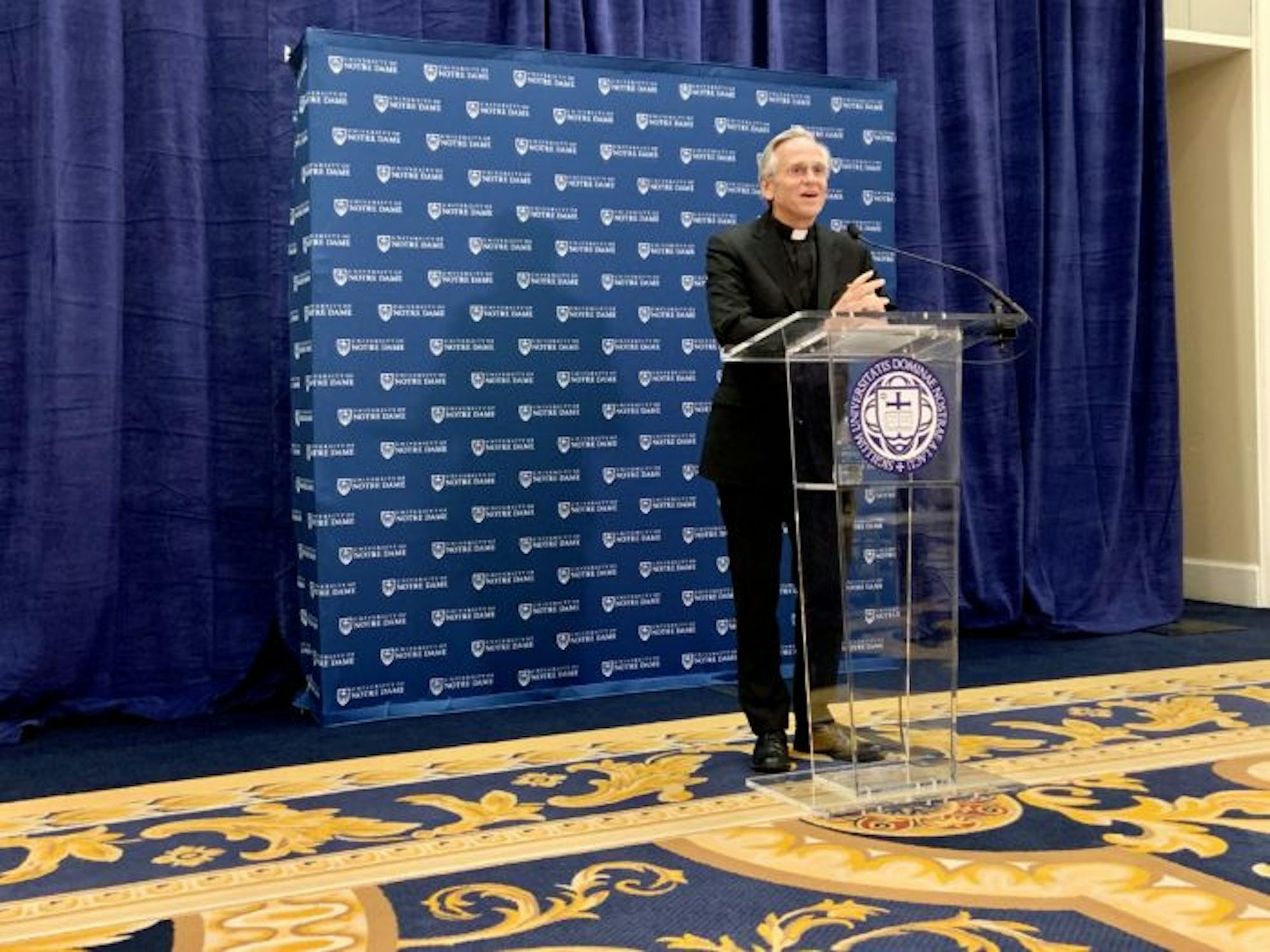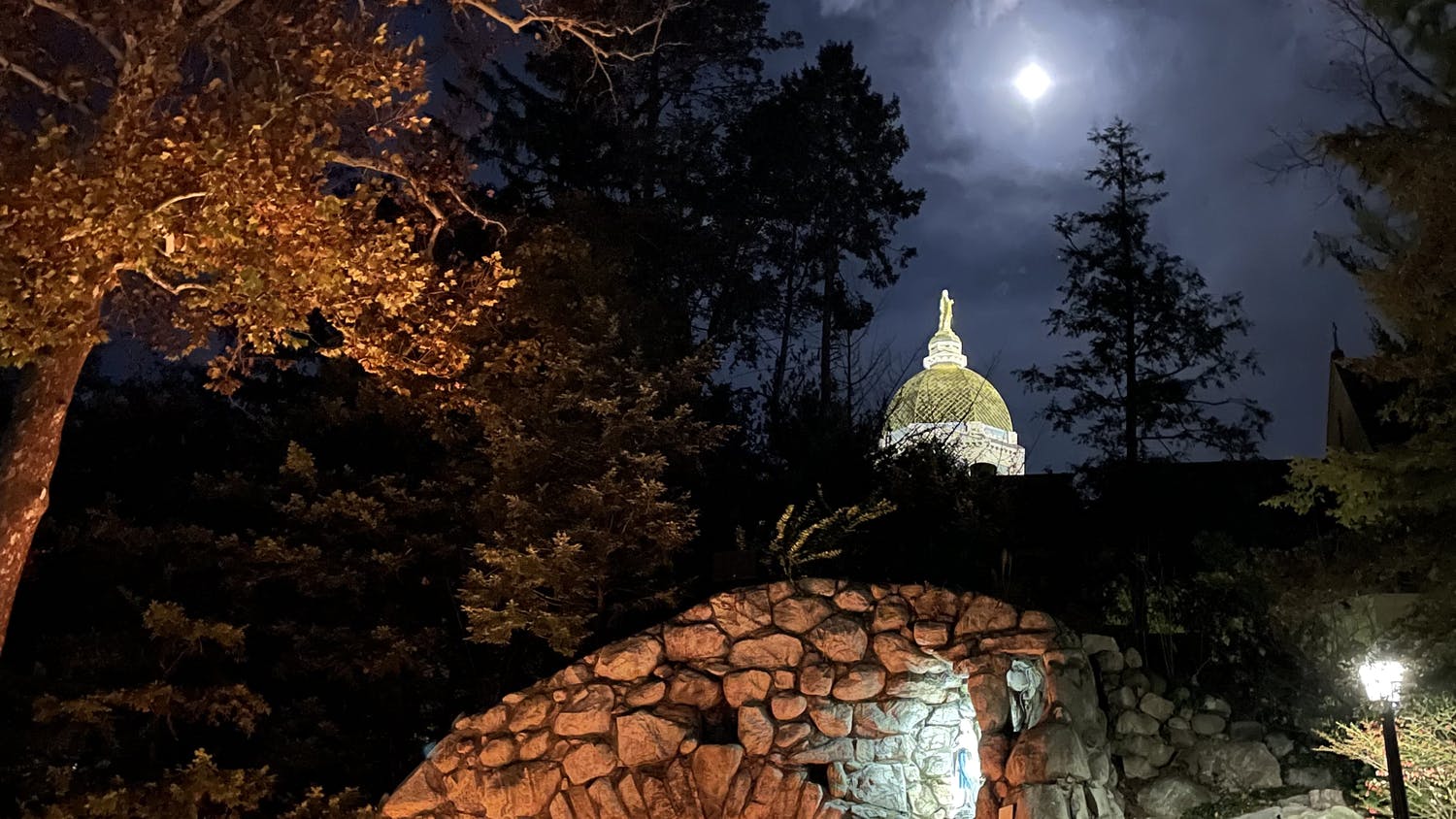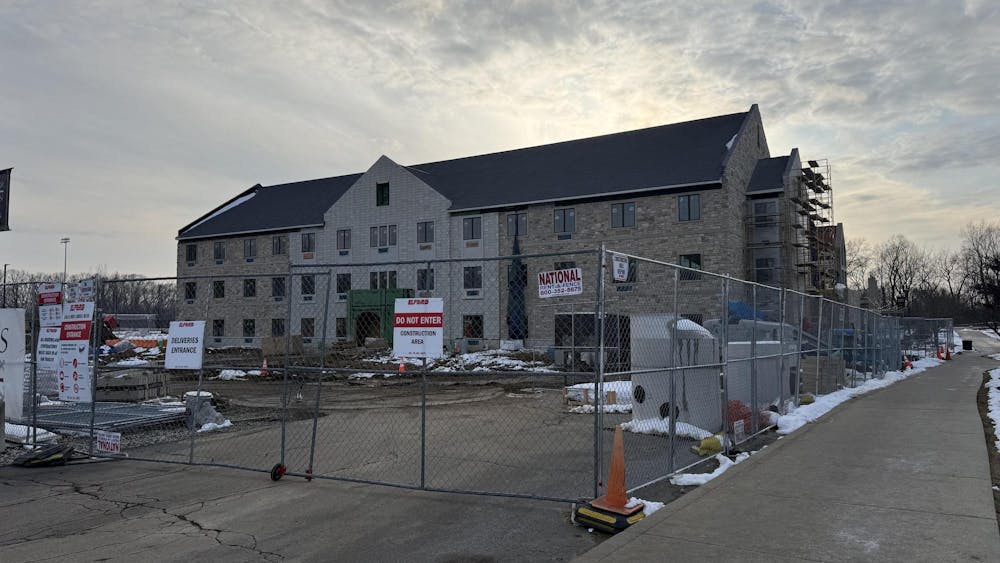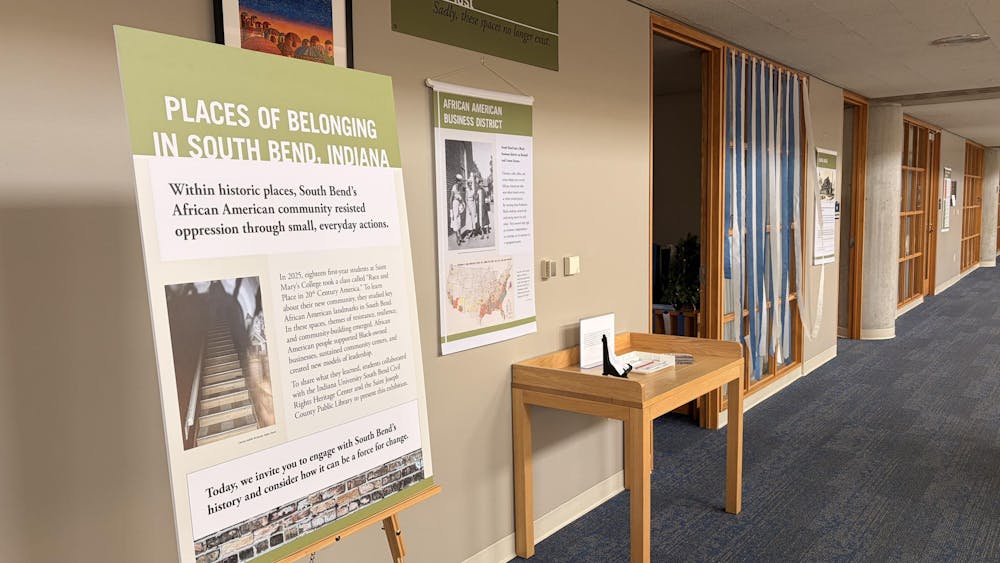Notre Dame will host the first presidential debate of the 2020 election campaign on Sept. 29, 2020, University President Fr. John Jenkins announced at a Friday press conference. It will be the first presidential debate hosted at the University.
“Notre Dame — throughout its history — has hosted presidents and world leaders, national figures,” Jenkins said. “But this will be its first presidential debate, hosted here on campus. The world’s attention during that time will be on us, and will be on this region as journalists and many others descend for that period to report on and witness that debate.”
Jenkins said he thinks presidential debates hold a “sacred moment” in the democratic process.
“There is — as we all know — so much noise and spin and presentation with campaigns,” he said. “But that’s a time when candidates are asked to engage one another in serious debate about serious topics so that we can inform voters. And that’s why we’re so excited to host this event at Notre Dame because it is that sacred moment in our democracy when we have that discussion.”
Though details have yet to be worked out, Jenkins said the debate will take place in the Joyce Center and will involve “elaborate” security preparations. Tickets will be “very limited,” he said, though a specific manner of distributing tickets has not been discerned.
The Commission on Presidential Debates, the body that organizes debates and of which Jenkins is a member, considers a variety of topics when selecting a venue. Jenkins said the group tends to favor universities because of their educational mission. In addition to the event at Notre Dame, the vice presidential debate will take place at the University of Utah. The other two presidential debates will take place at the University of Michigan and Belmont University in Nashville.
“It’s a public process in which various venues can submit applications,” Jenkins said. “The Commission on Presidential Debates has favored universities because they feel it’s part of the education of young citizens to be part of these debates and to witness them. You’re asked to submit an application — a number of institutions did so. They come and visit your institution, and then they make a decision among their candidates. It has to do with a number of different considerations.”
Jenkins praised his team for their work in bringing the event to Notre Dame. He said the school’s experience with major events likely helped its application.
“I have to give a compliment to my team … it’s a very complicated logistical enterprise. My team did such a good job in presenting this,” Jenkins said. “We have the advantage of [hosting] 85,000 — 100,000 people, probably — seven times a year for football games, so we know how to do big events. I think the University presented itself very well through my colleagues. … I think that had an influence on the decision.”
Jenkins said the debate fits with past Notre Dame efforts to bring in high-level political leaders to campus from various different political backgrounds. According to press literature distributed at the conference, Presidents Franklin Roosevelt, Dwight Eisenhower, Gerald Ford, Jimmy Carter, Ronald Reagan, George H.W. Bush, George W. Bush and Barack Obama have previously spoken on campus. President John F. Kennedy was awarded an honorary degree when he was a congressman.
“I think our democracy so badly needs a place where we can have serious conversations,” Jenkins said. “Our politics have been taken over by tweets and by slogans. We need to engage seriously about serious topics from across the political spectrum, the whole political spectrum. That has always been the case. We’ve always [brought] leaders from various parties, various figures to talk seriously about issues. I see these debates as a particularly powerful expression of that effort to provide a forum where we can have serious conversations in our democracy about challenges facing us.”
Notre Dame to host first 2020 presidential debate
Mary Bernard | The Observer
University President Fr. John Jenkins announced Friday that Notre Dame will host the first presidential debate in 2020.









